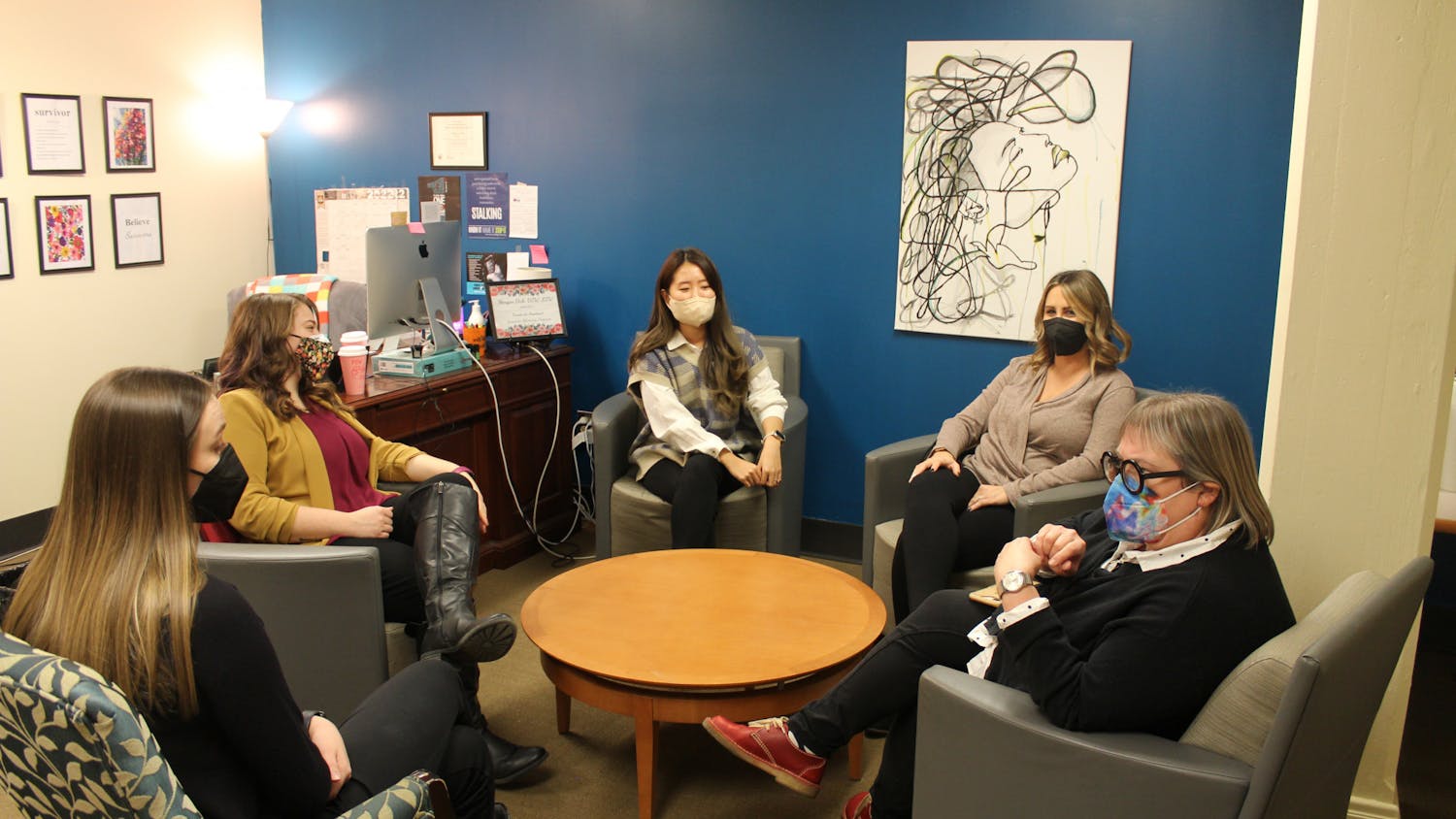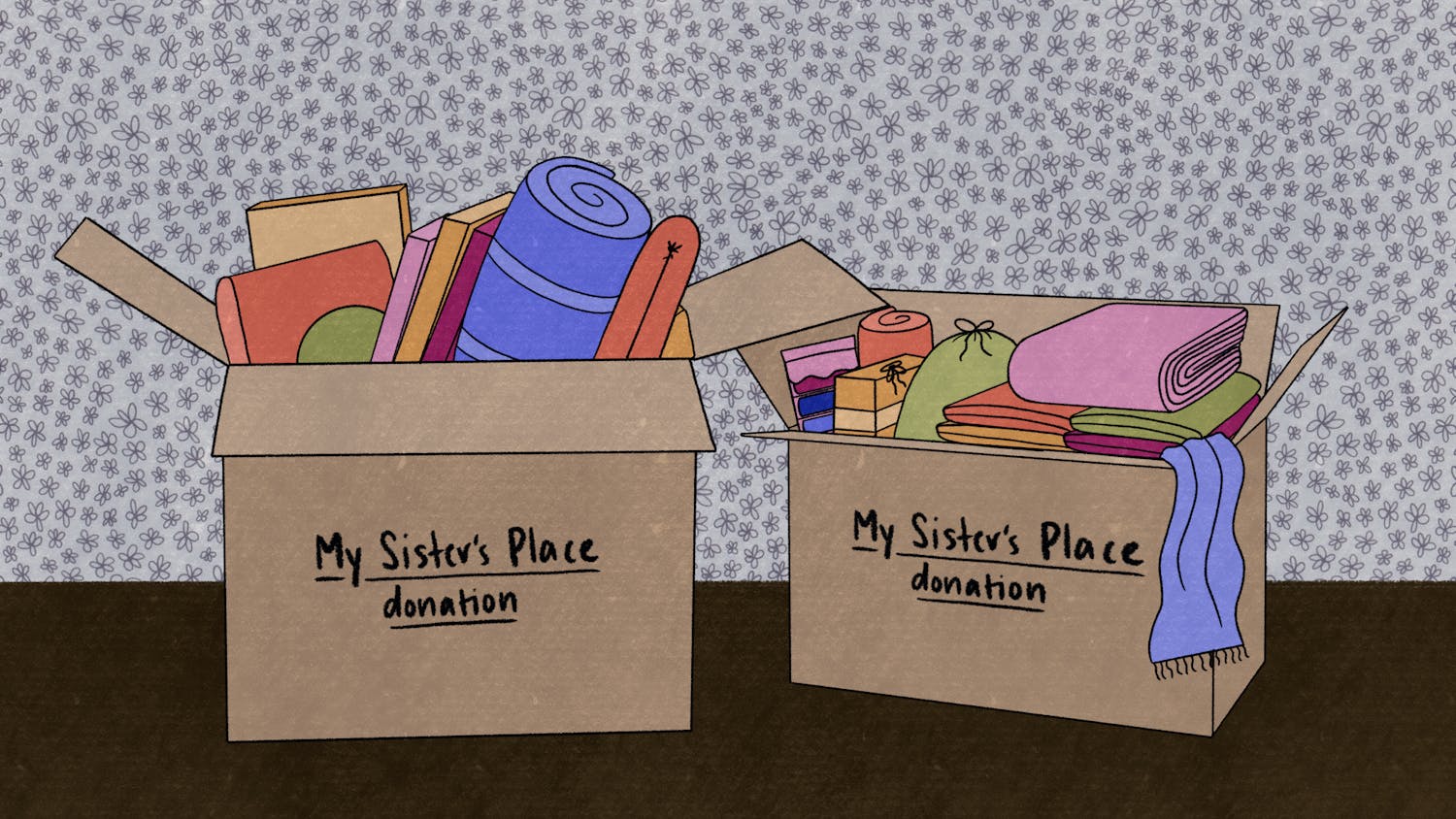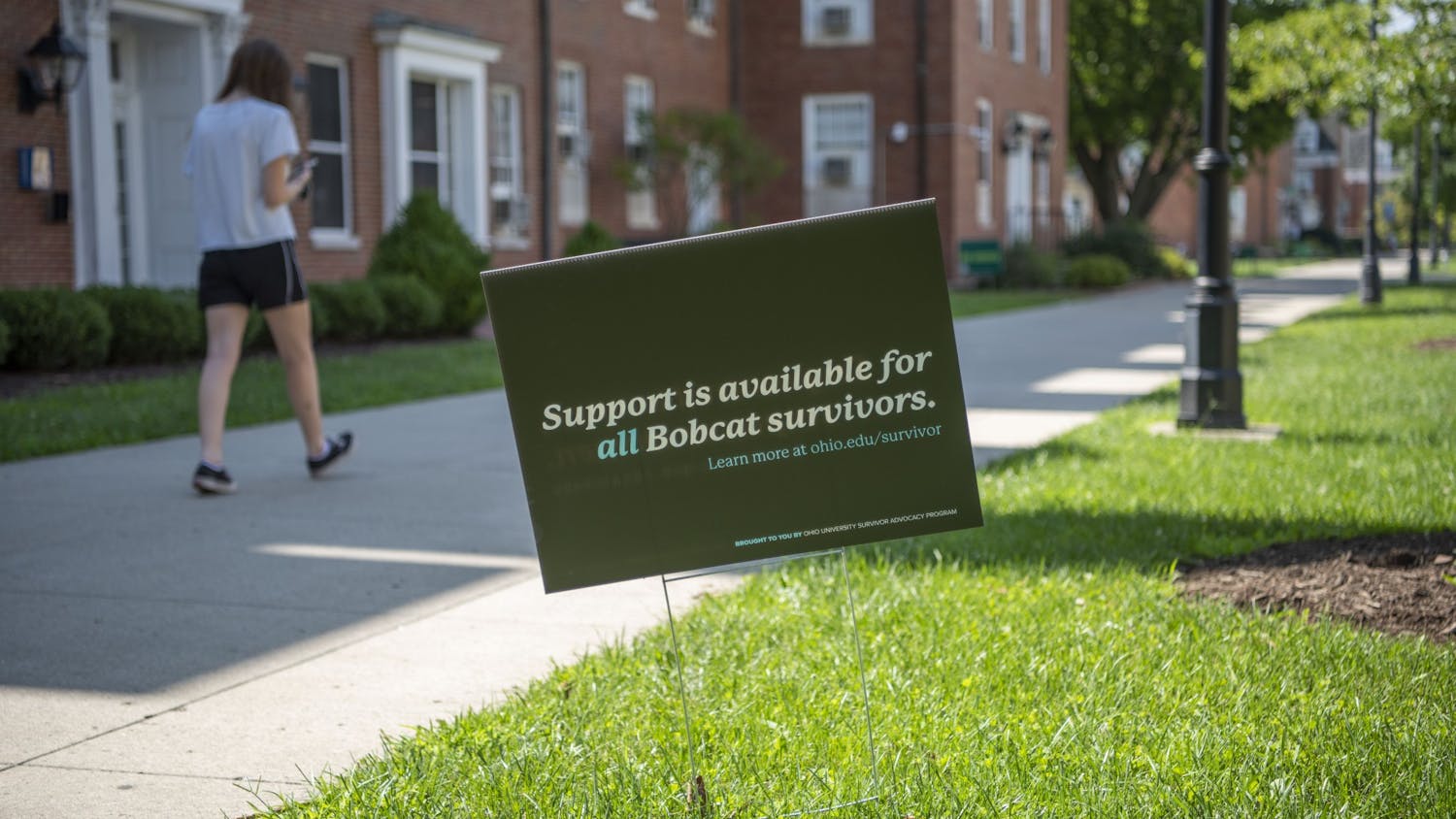According to the Center for Women and Families, more than 50% of sexual assaults on college campuses occur within the first four months of the Fall Semester. This period, August to November, has been deemed the "Red Zone."
Kaitlyn Urbaniak, a survivor advocate for the Survivor Advocacy Program, or SAP, said she has her own definition of the Red Zone.
"To me, the Red Zone is a time period from the start of Fall Semester up until Thanksgiving break where there's a heightened increase in the number of sexual assaults that occur on college campuses," Urbaniak said.
Julia Bee, a sophomore studying social work and psychology and an employee of the Women's Center, has a different perspective of what the time period means to her, specifically looking at it from the perspective of a student returning to campus.
"I learned about it just as being a week or a few weeks at the beginning of the year where people are more diligent on campus — maybe people are more aware of their surroundings," Bee said.
Bee said she takes extra precautions when returning to school since she is entering a different environment where she feels more susceptible to violence.
"For me, it would just be walking around alone," Bee said. "At home, I live in a really small area so walking around at night … is not as scary of an issue."
Furthermore, Bee has a set list of precautions she strives to take to ensure she and her friends remain safe when attending parties and hanging out at night.
"Being safer at parties and if I go out, making sure I'm around people I know," Bee said.
Although the precautions Bee mentioned are beneficial to maintaining safety, in the end, there is only so much people can do in a culture where sexual violence prevails. A survivor herself, Bee shared her experience and how she was able to access university resources.
"Last year, I had an experience in my first week, it was pretty bad, but I was able to go through SAP," Bee said. "I worked with them for a few weeks and they were really great. I also went through CPS (Counseling and Psychological Services) and the therapy there was awesome."
Urbaniak said SAP offers a variety of resources for students and that the university service has taken several steps to taken to promote their services. This includes tabling at Bobcat Student Orientation and presenting to the Housing and Residence staff how to share resources with their residents.
In addition to their office being open from 8 a.m. to 5 p.m. Monday through Friday, SAP has a 24-hour hotline where an advocate is always on call. The program also provides counseling services and hosts a weekly survivor support group meeting.
"We do both in-person and virtual services," Urbaniak said. "We provide supportive services and advocacy services. So what that looks like is we have individual, supportive counseling and trauma focused therapies."
These advocacy services also include accompanying survivors to the hospital for forensic examinations and making reports to law enforcement. Urbaniak said SAP also faces the effects of the Red Zone with an influx of students discovering their sources.
"Typically, October is a really busy month for us," Urbaniak said. "We know that students, as they're learning about their resources on campus and they're becoming more familiar, are going to reach out to those resources."
Although the typical effects of the Red Zone include physical violence, for Sam, who requested to use only his first name for privacy concerns, the Red Zone has looked a little different. He has experienced violence over the internet, specifically on dating apps.
"I've gotten threats because of my gender identity before," Sam said. "Online dating is a really big source of things like that."
In addition to threats, Sam has received messages devaluing his gender identity.
"Being assigned female at birth or being trans and presenting as that, I've had men say that by having sex with them, they'll teach me how to be a woman," Sam said.
Because of this, Sam reacts differently to other forms of sexual assault such as catcalling.
"I still respond with aggression," Sam said. "I think a lot of people have this shift where they just become docile or complacent to it which needs to change, but we don't feel safe enough to change it."
Although varying from Sam's, Bee and Urbaniak also have advice when it comes to navigating the Red Zone.
"I would say get as familiar with your resources on campus as you can," Urbaniak said. "Not only for yourself, but for your friends as well in case you need to refer them to those resources."
Bee proposes putting on a confident facade to deter potential perpetrators.
“Just walk around with confidence," Bee said. "Just put your chest out, pull your head up. Nobody's going to come up behind you if you're already aware of your surroundings."
Regardless of how students choose to protect themselves, it is important to be aware of the resources offered at OU. If one is in need of the services SAP has to offer, please click here.






